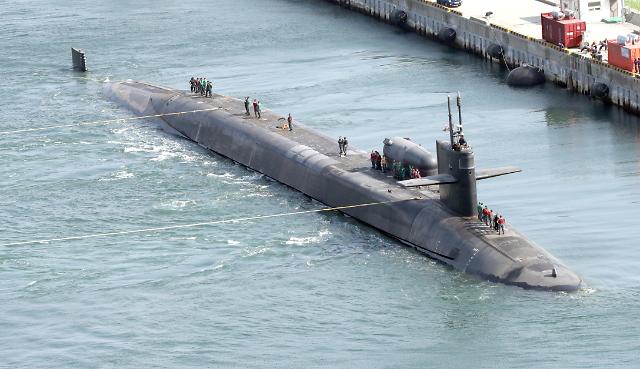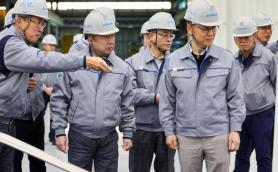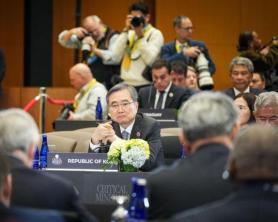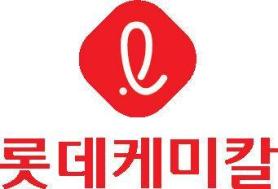
[Yonhap Photo]
A nuclear accord ratified by Seoul and Washington in 2015 has become the subject of debate ignited by President Moon Jae-in who said during a pre-election TV debate that South Korea may need a nuclear-powered submarine to counter North Korea's nuclear threat.
At the debate on April 27, Moon surprised rival candidates with a pledge to open re-negotiations with the United States on revising the nuclear cooperation agreement that stopped short of granting Seoul the permission it had sought to start reprocessing spent nuclear fuel.
"It's time for us to need a nuclear submarine. And for this, I will discuss amendment of the South Korea-US nuclear accord," Moon said, referring to reprocessing technology and facilities to acquire enriched uranium as fuel.
South Korea had wanted to develop uranium enrichment and reprocessing capabilities in order to address concerns about energy security and the management of spent nuclear reactor fuel, but Washington argued that such capabilities could be used to produce weapons-grade nuclear material.
The 2015 deal, which replaced a 1974 accord banning reprocessing, left the door open to reprocessing sometime in the future, by allowing South Korea to conduct "research" into spent fuel management. That includes research into "pyroprocessing", a new technology considered largely proliferation-resistant since the product is thermally and radioactively far too hot to use for a weapon.
Wary of potential proliferation, Washington has put South Korea under tight surveillance, insisting wider concessions on reprocessing could complicate efforts to denuclearize the Korean peninsula.
However, the North's aggressive push for a submarine-launched ballistic missile (SLBM) program, coupled with a series of nuclear and ballistic missile tests, has complicated matters, leading to a dramatic change in South Korea's public perception.
Moon promised to pursue realistic diplomacy that emphasizes national interests, accelerate the establishment of its own missile defense system and beef up its independent military power with bigger defense spending.
Moreover, the liberal president did not hide his real intentions to reduce South Korea's heavy reliance on US military protection at a time when South Korea is under heavy pressure from US President Donald Trump to pay more for the presence of American troops and equipment on the Korean peninsula.
Piles of spent fuel rods stacked at more than 20 nuclear reactors have been a stringent issue in South Korea, which manufactures home-made reactors and exports nuclear power plants.
It remains to be seen how Moon can moderate growing domestic calls for uranium enrichment as nuclear power stations run out of storage space. If South Korea ever decides to scrap the accord, it would be able to produce a huge amount of weapons-grade nuclear material, probably faster than North Korea.
Lim Chang-won = cwlim34@ajunews.com
Copyright ⓒ Aju Press All rights reserved.



